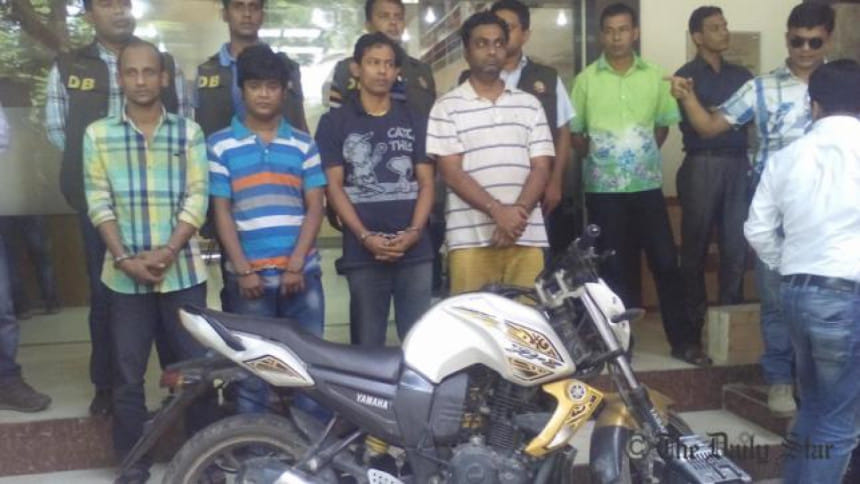Tavella's killing: Whose claim is correct?

We are now confronted with two very different findings of two investigations on the killing of the Italian Aid worker Cesare Tavella, shot dead by some assailants in Gulshan diplomatic zone on September 28 last year. We are now even more perplexed regarding the actual perpetrators a year after the episode. It was perhaps the first incident of attack on a foreigner on our soil and all kinds of speculative comments came forth from many quarters as to who might be involved in the killing.
What has confounded the matter is that the contradictory findings on the killing come, surprisingly, from the same agency, albeit from two different elements of the police. And the second disclosure, by Rab, lends a different tenor to the case framed by the DMP.
According to the statement of Rab issued on Oct 21 2016, Cesare Tavella was shot dead by a militant group. The press release of Rab listed 19 attacks claimed by the "Neo JMB", and the killing of the foreigner in Gulshan diplomatic zone on September 28 2015 had featured at the top. On the contrary a charge sheet was submitted in July last year by the Detective Branch of the DMP, who investigated the Tavella murder case, on the basis of completely different findings in which seven persons, including MA Quayum and his brother, have been indicted.
Obviously, only one of the two investigating agencies is right. One cannot say who but two different outcomes of two separate investigations into the same case is a very rare occurrence if at all. How does one reconcile two different findings basing on one of which trial proceedings have already started? The DMP has the "confessions" of the accused to go by while the Rab claim is based on "documents" recovered from the dens of Neo JMB cadres. Certainly one would have to be discarded for the other, unless of course it can be established that the seven DMP accused had truck with the neo JMBs. Thus the natural question that emerges from the foregoing is why two different results of investigation of the same case, and what does it do to the merit of the case instituted by the DMP?
Given the credentials of the top accused in the list, he being joint convener of the BNP's Dhaka city unit and a former ward commissioner of the erstwhile Dhaka City Corporation, and his brother, the political undertone of the matter is quite palpable. One can be forgiven for thinking that the outcome of the investigation was predetermined. The 'Jodge Mian' saga is only too fresh in our mind not to see these developments as ominous.
This paper had highlighted the need for a thorough and fair investigation of the case and that it was not in any way politicised. We had also suggested that if an IS link was found in the process it would only help to combat the matter better, if not, so much the better. An open mind leads to sound conclusions. Otherwise that would only divert the attention from the main course of investigation, the long term effect of which is that such cases remain unresolved with the actual perpetrators getting away or exploiting the loopholes, as might happen in this case, to evade justice. One recalls the vehemence and conviction with which some senior police officials put their case that Tavella murder was a political conspiracy to reap political dividends. Understandably, there was a natural disinclination to be associated with anything that had to do with IS.
Evidently, with IS claiming responsibility for the killing, as were the claims for most of the killings in 2015, there was compulsion on the government to disprove the IS claim. Regrettably, the effort to do so has gone waste. Had these cases been approached without a predetermined notion many of these could have been resolved well before, and many of the savage killings could well have been anticipated.
Clearly, the consequence of such positions, assumed without fully investigating a case such as this, is that the credibility of not only the investigating agencies but also of the government is put on the line. And even more, a very sensitive and important case which has drawn tremendous international attention has been trivialised.
The government's security and intelligence agencies are national assets and no undertaking that can fritter away their efforts should be assigned to them. The facts are incontrovertible, the findings are not. One wonders whether the cause of justice will be served in this case.
The writer is Associate Editor, The Daily Star.

 For all latest news, follow The Daily Star's Google News channel.
For all latest news, follow The Daily Star's Google News channel. 



Comments